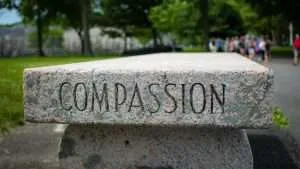Here at Applied Worldwide, we make income selling sociology consulting services. If you are unfamiliar with Applied Worldwide’s sociology consulting projects, please head over to our sociology consulting website and browse our project reports where you can read brief reports on our consulting work. Our Director of Consulting Services, Dr. Stephanie Wilson, uploads some wonderful reports finalizing most of our projects.
Now that you’re familiar with our consulting work, let’s get into the purpose of this article, which is why we brand our services as “sociology consulting.”
Pushback on Sociology Branding
We pretty regularly get pushback for advertising our services as “sociology consulting.” In short, the argument is that clients do not understand what sociology is or whether they need such a service. This argument presents a valid point and is one of our greatest obstacles, but we would argue that the fact people are unfamiliar with sociology is exactly why we should be using “sociology” in our branding.
At Applied Worldwide, we believe in the value of applied sociology—and we believe we can sell that value to clients. We also believe we live in an opportune time for selling sociological skills and knowledge. Therefore, we call ourselves sociology consultants because we believe we can sell clients on sociology and our ability to apply it across a variety of contexts.
So, to all those who, over time, have suggested we sell our services as “business consulting,” “management consulting,” “research consulting,” or something similar, our mission of enhancing a vision of applied sociology is why we offer “sociology consulting” services. This branding approach is as much a disciplinary service endeavor as it is a personal endeavor. If we can help create a wider market for sociology skills and services, we will have met a major goal we had by founding Applied Worldwide!
Plus, we genuinely believe organizations will pay us to use our sociological skills and knowledge to help them solve problems and find success in our modern society.
Examples from our Sociology Consulting Portfolio
Below, we share a few projects we have had the pleasure of working on that we believe showcase the diversity and applicability of our sociological services. We have conducted research with surgeons in Peru, strategized a digital marketing plan for a hospitality business in Colorado, and run a digital political campaign for a city council member. Continue reading below to learn more about each project, including how sociology made them successful.
Analyzing Interviews with Surgeons and HIV Patients
This research project was our third contract with UCHealth through a loyal research consulting client and trauma surgeon. This client reached out specifically to utilize Stephanie’s expertise in qualitative methods and sexual health. One of Stephanie’s first independent research projects as a graduate student was a qualitative study exploring the role of stigma in disclosing a genital herpes diagnosis. So, when the client had a project focused on access to emergency general surgery for people living with HIV in Peru, she was excited and fully prepared to tackle the client’s requested deliverables.
Those requested deliverables included synthesis tables derived from qualitatively coded interview transcripts that had been conducted in Peru and translated into English and a write up of the qualitative findings from the analysis and synthesis of the interview data. When we come across projects like these that utilize our qualitative methods expertise, the sociology behind it all seems more obvious. However, sociology infiltrated this project far beyond mere research methods.
Beyond using qualitative analysis skills, Stephanie’s expert knowledge on stigma, as it relates to sexually transmitted diseases, supported her ability to bring a deeper understanding of the data to the project. So, while assumedly anyone trained in qualitative research could analyze and synthesize qualitative interview data, only a sociologist trained in qualitative methods can also bring a deep theoretical understanding of the data as it relates to social institutions, behaviors, and norms.
Strategizing Digital Marketing for a Mountain Lodging Property
For this project, we had the unique opportunity to work with Island Acres Resort Motel, a small mountain lodging property in Colorado. Our main task for them was to reimagine their website design and digital marketing strategy. When we first met with the owners, they were still recovering from the financial impacts of the pandemic and wanted to start ramping up reservations again. Because the online travel agencies (OTAs), such as Expedia, conflicted with the owners’ values, we opted to help them revamp their own website to drive business. However, we did not simply create a new website and leaving it at that. Instead, we proposed a plan to integrate the new website into a digital marketing strategy that would increase traffic to their business’ site to showcase the unique amenities of their property and attract new business.
While on the surface this project may not seem sociological, our sociology skills and knowledge permeated every aspect of it. For this particular project, we relied on sociological knowledge about hospitality and placemaking to craft copy that marketed an inviting, memory-making atmosphere to potential guests. Further, we leaned heavily on our sociological understandings of exploitation involved in the digital marketing landscape, especially when it comes to OTAs.
Island Acres’ owners’ distaste for using OTAs in their digital marketing strategy was not lost on us, and as sociologists, we would never put a client in the position to be exploited. Because of our sociological knowledge, we could understand the intricacies that drove our client’s resistance to using OTAs and find a workaround that still increased business without also increasing the business’s susceptibility to exploitation.
Running a Sociologically-Informed Political Campaign
Running a political campaign was definitely a unique experience as a sociologist. The client, Melissa, was a colleague Stephanie met through working on the board of a non-profit housed in Greeley, CO—the city for which the client intended to run for city council. While this initially seems more up the ally of political scientists, being sociologists allowed us to bring a fresh perspective to the local political campaign process. First, we were able to understand what language to use to help Melissa connect with her future constituents. We could then rely on that language for crafting copy for her website and social media posts.
Second, we have a unique understanding of the political process and could use that to our client’s advantage. Sociology is a discipline that covers nearly every possible context and industry you can think of, including politics. In being that way, it allows those who study it to see the connection between the various social institutions that make up society, including government, media, education, and more. Our sociological perspective of the political landscape at the local level seeped into the digital media campaigns we ran for Melissa and took those campaigns to a much more informed level.
For example, as sociologists we are constantly asking what the social and cultural context of a given situation is and why. What are the patterns of behavior and beliefs, and where do they stem from? By delving into those deep questions, our digital media strategies for Melissa’s campaign not only touched on her abilities to lead in a city council role. Instead they also touched on how her leadership abilities related to the broader social and cultural context of the city for which she was running.
Final Thoughts on Sociology Consulting
As you can see, we have engaged in a variety of projects in diverse sectors of the economy and government. We have worked for both individuals and for organizations. Additionally, we have worked for for-profit organizations and non-profit organizations. The one really compelling thread between these projects is our ability to apply sociological skills and knowledge to these different cases. And again, we really do think that common thread is compelling.
So, why do we sell our services as “sociology consulting?” Because if we sold it as anything else, it would not accurately portray the breadth and depth our work. We are committed to enhancing of vision of applied sociology across industries to promote the value of sociological skills and services. And, for us, there is no better way to do that than by using the discipline that drives of our work—sociology—in our branding.







